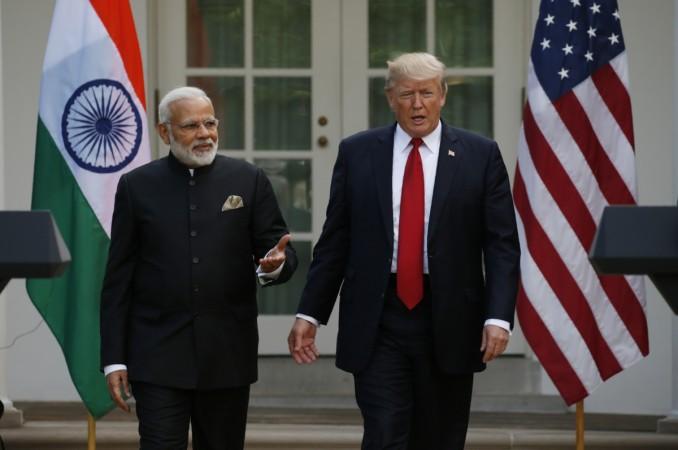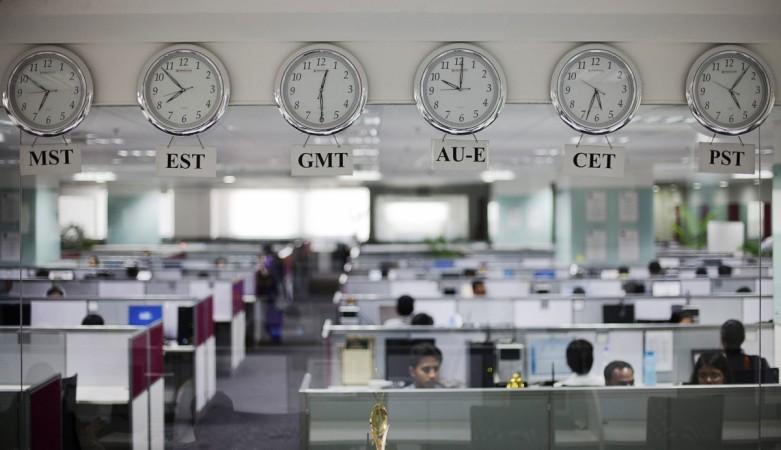
Prime Minister Narendra Modi's fifth visit to the US and first meeting with US President Donald Trump has not impressed all. It has been said that amid the handshakes and awkward hugs, Modi failed to raise two significant issues with the American president, namely, the restriction of the H1B visas and climate change. Trump, however, did not miss his turn to remove trade barriers to the American firms.
PM Modi, it seems, loves to put all the focus on the twin factors of China and Pakistan whenever he engages with the world. May be he is still continuing with the mindset he had during the Barrack Obama days when Washington's policies were conducive for New Delhi. But with the change of guard in the White House, things have undergone a big transition and there is no guarantee that Trump will serve Modi's interests as his predecessor.
Indian foreign policy can't be obsessed only with Pakistan & China
The main purpose of Modi's visit looked to woo the new American administration to gain an edge over the enemies near home, Pakistan and China. But by doing this, India is actually making its position weak vis-a-vis the Americans. For a sovereign country which has traditionally followed a policy of non-alignment, this is not a right kind of reorientation of the foreign policy.
New Delhi, in the Modi era, has decided to see into the eyes of the Chinese while dealing with them. To an extent, it is okay but overdoing it will make India dependent on the Americans because at the end of the day, India doesn't really match China's influence. The assertive foreign policy vis-a-vis Beijing has, paradoxically, made New Delhi's position secondary to Washington. We really don't need to imitate Pakistan's foreign policy of the Cold War period.
Two of Trump administration's top officials have backed Pak in recent past
Modi also needs to remember that two of the Trump administration's top rank-holders – Defence Secretary James Mattis and National Security Adviser Herbart McMaster – have been members of the US Army in the past and both have records of backing Pakistan in the past.
So, irrespective of what Trump says to Modi, there is very little possibility that Washington will dump Islamabad overnight. Moreover, as long as the Afghanistan crisis is alive, the US will be needed Pakistan more than anybody else. The US gave India a consolation prize by announcing Hizbul Mujahideen leader Sayeed Salahuddin as a specially designated global terrorist. What difference does it make since Hijbul itself was declared a terror outfit years ago and that an ageing Salahuddin has nothing more than a symbolic importance?
Trump is not bothered about South China Sea as was Obama
Trump is also not bothered much about what China is doing in the South China Sea for he is catering more to a hyper-nationalist constituency of Americans, unlike his predecessors who wanted to prove points overseas. So, even if the matter found a space in the joint statement issued by the two leaders, there is very little possibility of the Americans continuing with Obama's policy in the Asia Pacific.
India's foreign policy orientation has seen a paradigm shift in the recent years, especially under Modi who has made repeated visits to the US to gain a momentum for New Delhi-Washington relations. But he is doing so at a time when the US's image across the world has taken a severe beating.

Image of Trump's US has received a blow world over
According to a survey published by the Pew Research Center on Monday, June 26, a median of just 22 per cent across 37 countries has confidence that Trump will do the right thing. Even towards the end of Obama's tenure, the corresponding median was 64 per cent.
Most or all of Trump's visions as candidate or policies as the president have not been well received by the world, be it is imposing ban on travel to the US; taking a harsh stance on Iran; pulling out of the Paris climate deal and other trade agreements; intending of building a wall along the US-Mexico border; etc. The American foreign policy under Trump has a high potential of jeopardising India's own interests – economic and strategic and Modi needs to reassess his idea of indulging in too much hugging of the president.
It's sad that Modi didn't raise his own country's interests
It is disappointing that Modi did not raise the critical H1B visa issue, something which if not handled properly, can put India's growth economy in doldrums. Also, as an aspiring world power, Modi should have told Trump the stupidity that his administration showed by pulling out of the climate deal. Modi had thrived with Obama because the latter had created a favourable milieu for him. With Trump, the Indian PM has to prepare his own ground. The first meeting between the two leaders did not show it was a balanced deal whatsoever.
Non-alignment might not be a realistic foreign policy today. But neither is over-alignment. We need not work hard to remain an eternal 'good boy' in the books of Washington.


!['Kaise ho bhai..': PM Modi shook hands with Akshay Kumar at a media summit in Delhi [Watch] 'Kaise ho bhai..': PM Modi shook hands with Akshay Kumar at a media summit in Delhi [Watch]](https://data1.ibtimes.co.in/en/full/806317/kaise-ho-bhai-pm-modi-shook-hands-akshay-kumar-media-summit-delhi-watch.jpg?w=220&h=135&l=50&t=40)


!['Kaise ho bhai..': PM Modi shook hands with Akshay Kumar at a media summit in Delhi [Watch]](https://data1.ibtimes.co.in/en/full/806317/kaise-ho-bhai-pm-modi-shook-hands-akshay-kumar-media-summit-delhi-watch.jpg?w=220&h=138)



!['Kaise ho bhai..': PM Modi shook hands with Akshay Kumar at a media summit in Delhi [Watch]](https://data1.ibtimes.co.in/en/full/806317/kaise-ho-bhai-pm-modi-shook-hands-akshay-kumar-media-summit-delhi-watch.jpg?w=220&h=135)


